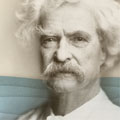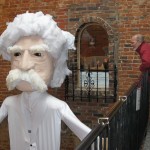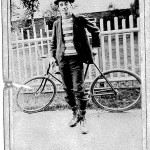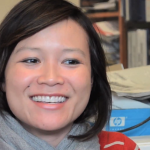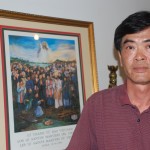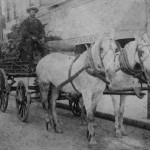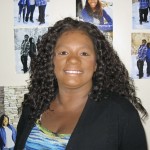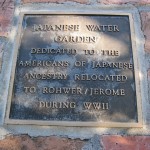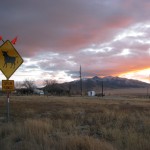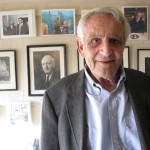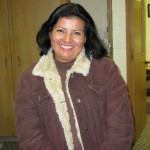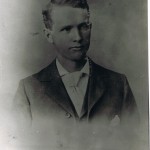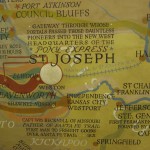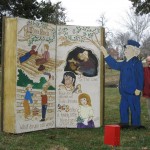After a full day of interviewing at Louisiana State Penitentiary, we shot north toward Arkansas through Louisiana towns with memorable monikers: Tallulah (not named for the actress), Water Proof and Transylvania (an enormous black bat adorns its water tower).
We took a left off Route 65 on S. First Street in McGeehee, Arkanas, to see a tiny reminder of a gargantuan failure in U.S. history. For a year during World War II tens of thousands of law-abiding, Japanese-American U.S. citizens were rounded up on the West Coast and imprisoned at camps near McGehee and Jerome, Ark.
Three enormous billboards, huge white letters on black background, greet us along First Street. The first: Jesus is coming soon. The second: Jesus IS coming soon! The third: Are you ready to meet Jesus?
I suspect not, but I was ready for a city park that houses a large human sun dial, an even larger monument to U.S. war veterans and a small memorial plaque that explains the presence of a Japanese water garden. The plaque euphemistically describes the thousands of Japanese Americans’ imprisonment as a relocation.
In Pine Bluff, Ark., we visited briefly with a friend of mine from 1986, Bobbie Harville Crockett, a communications specialist at the agriculture school of the historically black University of Arkansas at Pine Bluff. We reminisced about the six African Americans who made up almost half of the reporting staff of the Southbridge (Mass.) Evening News, during Crockett’s time there.
Three of the six still work at newspapers. But Crockett traded in long, irregular night-and-day newsroom hours for a regular schedule that made it easier for her to raise her son, who is now 14.
We push on to Little Rock to make a late-afternoon interview that will help us understand race in a city made famous in the fall of 1957 for the integration by nine black students, under escort of armed troops, of Central High School. We had hoped to video interview Spirit Trickey, daughter of Minniejean Brown, one of the Little Rock Nine, but Trickey is road-tripping through Canada; we arrange to interview her by telephone about her play on the school’s desegregation when she returns to Little Rock.
But we were lucky on short notice to land an interview with Adjoa A. Aiyetoro, director of the new Institute on Race and Ethnicity at the University of Arkansas at Little Rock. She described the Institute’s plans, including an ambitious research project on institutional racism in the Arkansas legal system.

Adjoa A. Aiyetoro, director of the new Institute on Race and Ethnicity at the University of Arkansas at Little Rock
After our interview, Aiyetoro showed us what she called a “graffiti board.” More than 200 students had stuck favorite quotes about addressing racism and other challenges on the board, which is titled “Face It To Fix It.” Mark Twain joins Martin Luther King Jr., Bill Cosby, Maya Angelou, Abraham Lincoln and Muhammad Ali among the most quoted.
Many quotes encourage action. Ali: “Don’t count the days, make the days count.” Margaret Mead: “Never doubt that a small group of thoughtful committed citizens can change the world. Indeed, it’s the only thing that ever has.”
But Margaret Atwood is the most quoted for these words: “I hope people will finally come to realize that there is only one ‘race’—the human race—and that we are all members of it.”
Loren Ghiglione

